China’s Belt and Road Initiative (BRI) has for years held a prominent position in the global infrastructure investment space. In the absence of similarly far-reaching projects coordinated by other countries including the transatlantic partners, important questions about the BRI’s implications for Europe and America arise. Given U.S.-China competition pulling the EU in two directions and opposing Approaches among member states vis-à-vis China amid a globally growing infrastructure investment gap, the need for a liberally motivated1 large-scale infrastructure investment approach is clear. This alternative model of advancing economic development goals stands in opposition to the BRI’s approach of creating economic dependence on China through massive recipient country debt thereby increasing Chinese geopolitical power.
If this need is not addressed, the U.S. and EU would lose narrative power and influence in shaping the world order while giving way to growing Chinese authoritarian influence and increasing transatlantic partnership-internal policy incoherence, which could result in weakening the Western alliance. Further risks include greater international appeal of China’s authoritarian governance model, growth in authoritarian political influence on international standard setting, decline of good governance standards, and security vulnerabilities of critical infrastructure. All of these would be concerning given direct risks and policy challenges created for the EU and the U.S.
This paper will go through three examples of recent BRI investments, namely the investments in the Port of Piraeus, the Budapest-Belgrade Railway and the European 5G network, to illustrate the risks and policy challenges created for the transatlantic partners. In doing so, it will be argued that while each of these projects were met with some European critici*s, a better coordinated and more comprehensive U.S.-EU counterapproach to the BRI is needed to prevent further dependence relationships, which could lead to larger political, economic, and securitycrises as the implications of the war in Ukraine painfully demonstrate in the energy space.
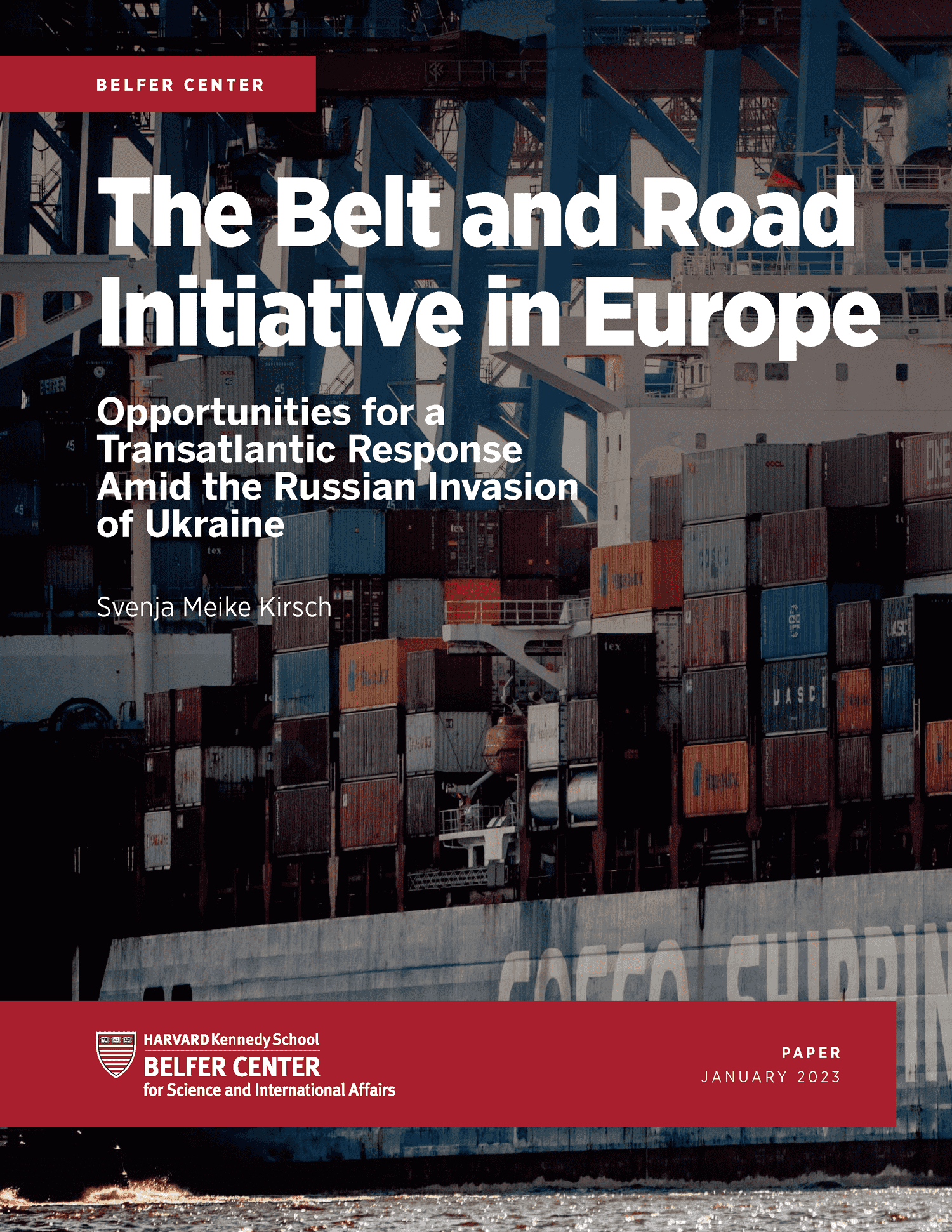 1 / 64
1 / 64
 2 / 64
2 / 64
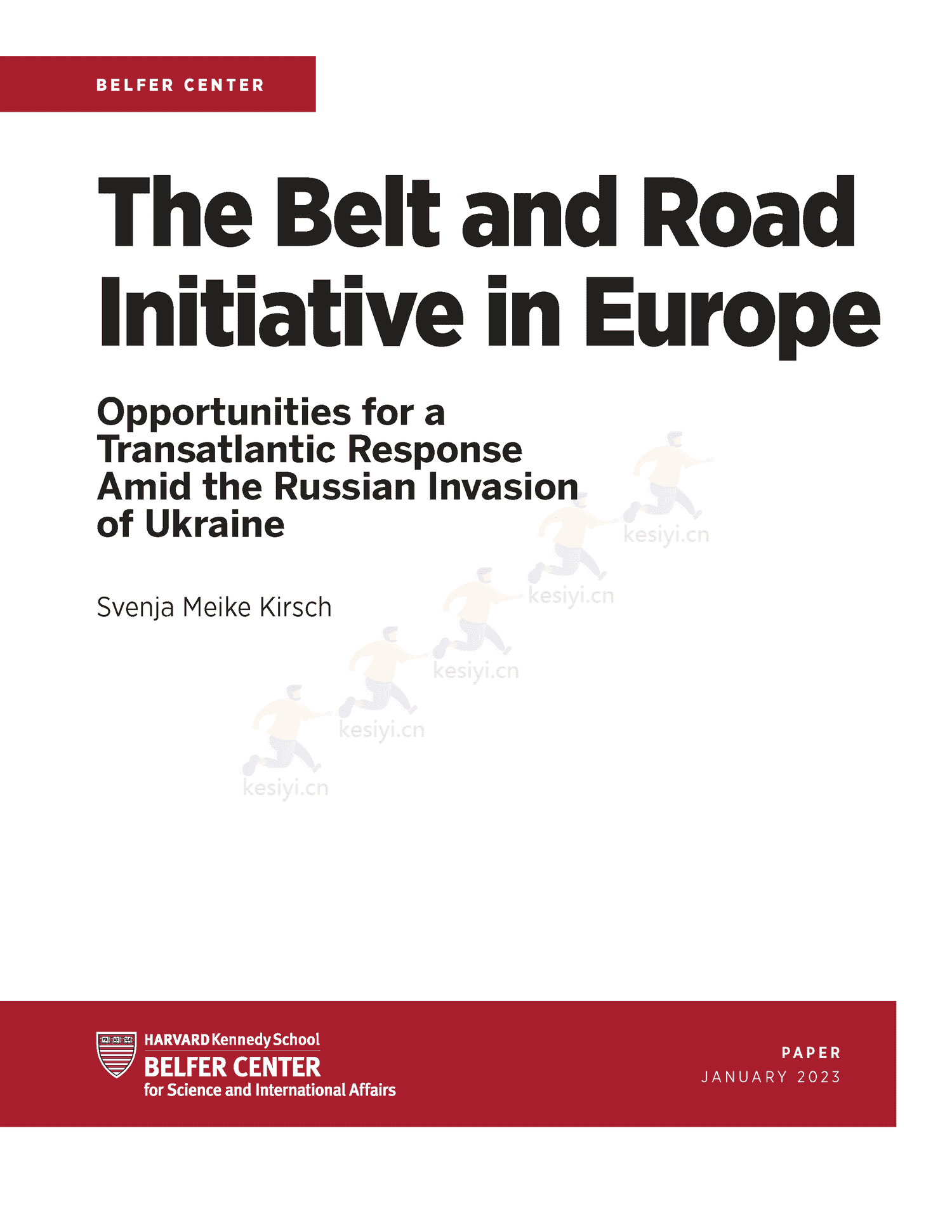 3 / 64
3 / 64
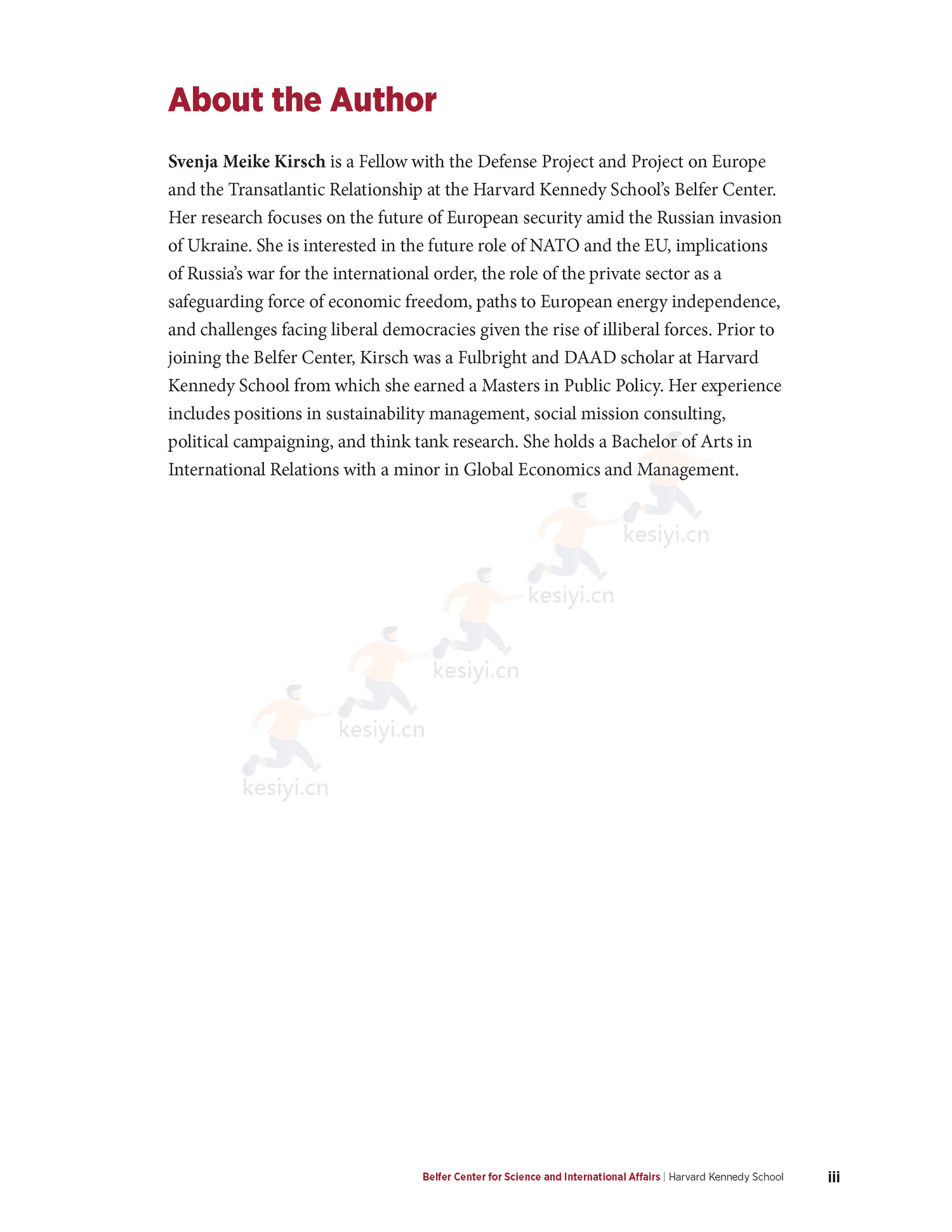 4 / 64
4 / 64
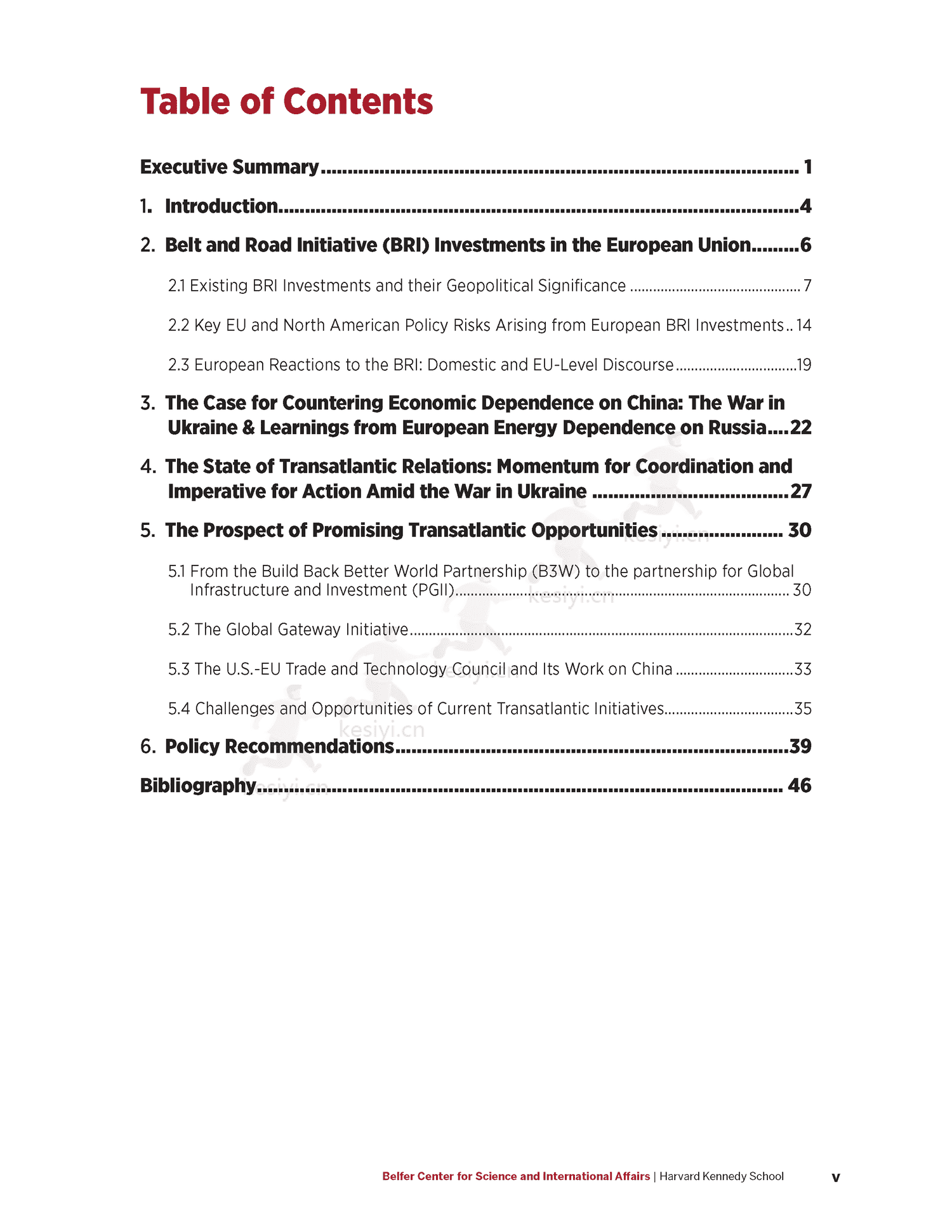 5 / 64
5 / 64
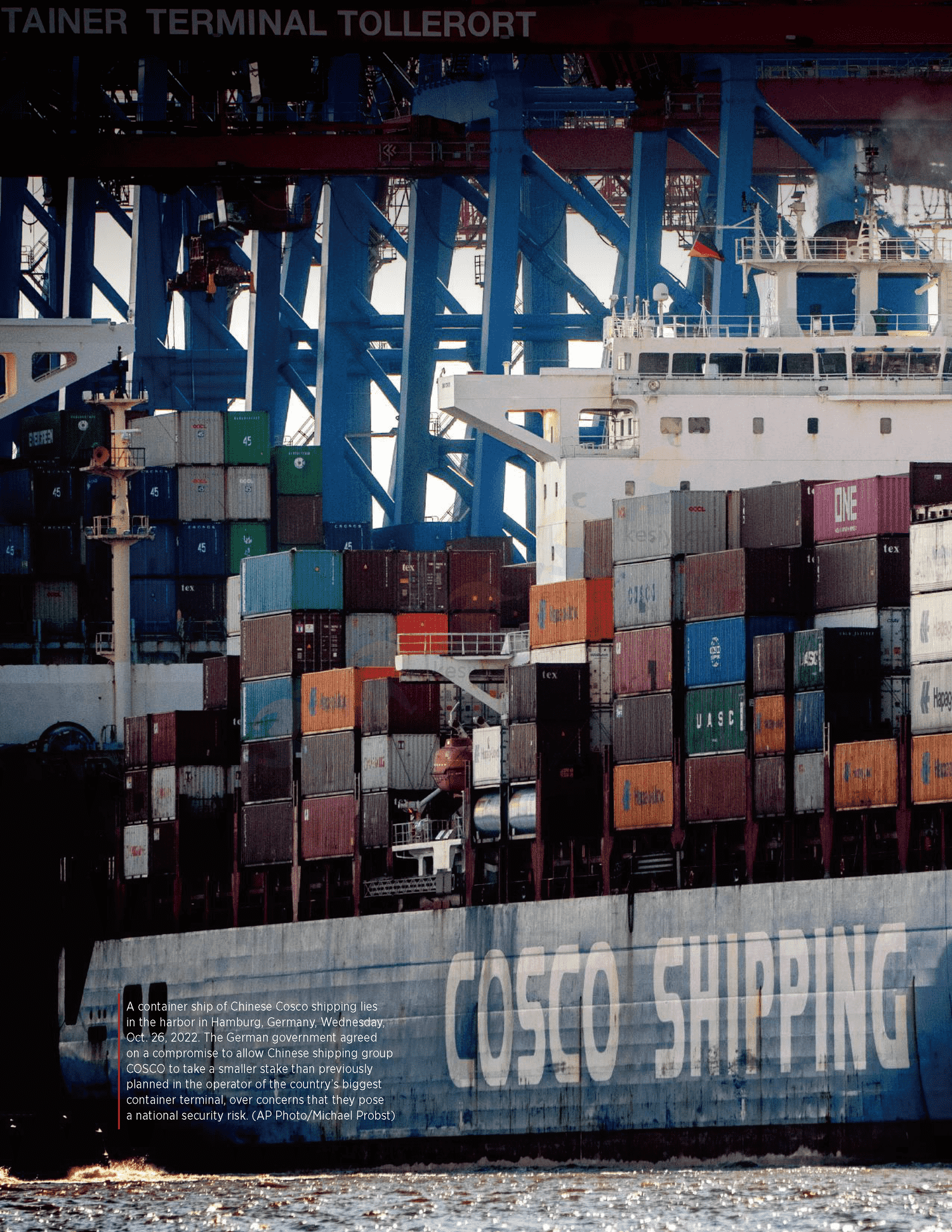 6 / 64
6 / 64
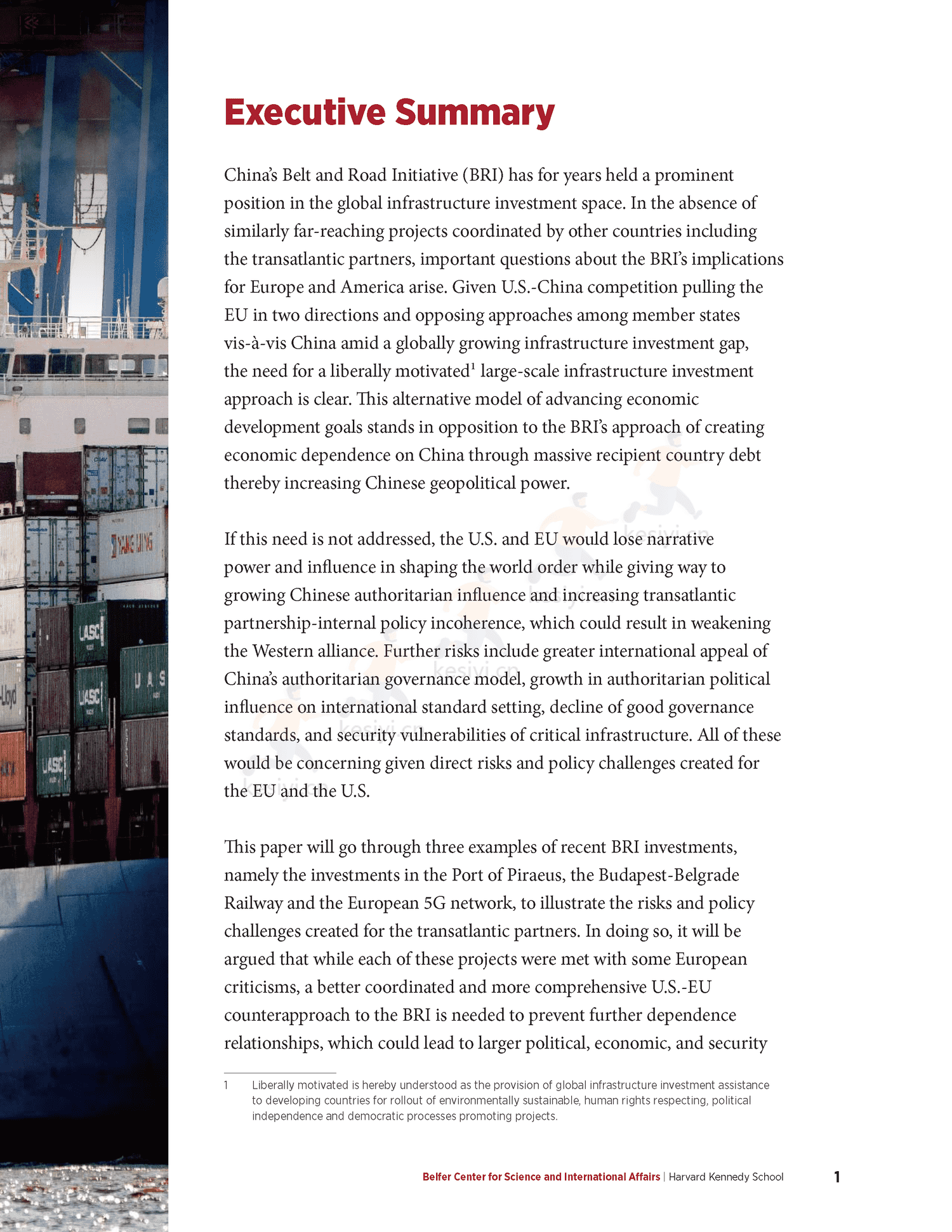 7 / 64
7 / 64
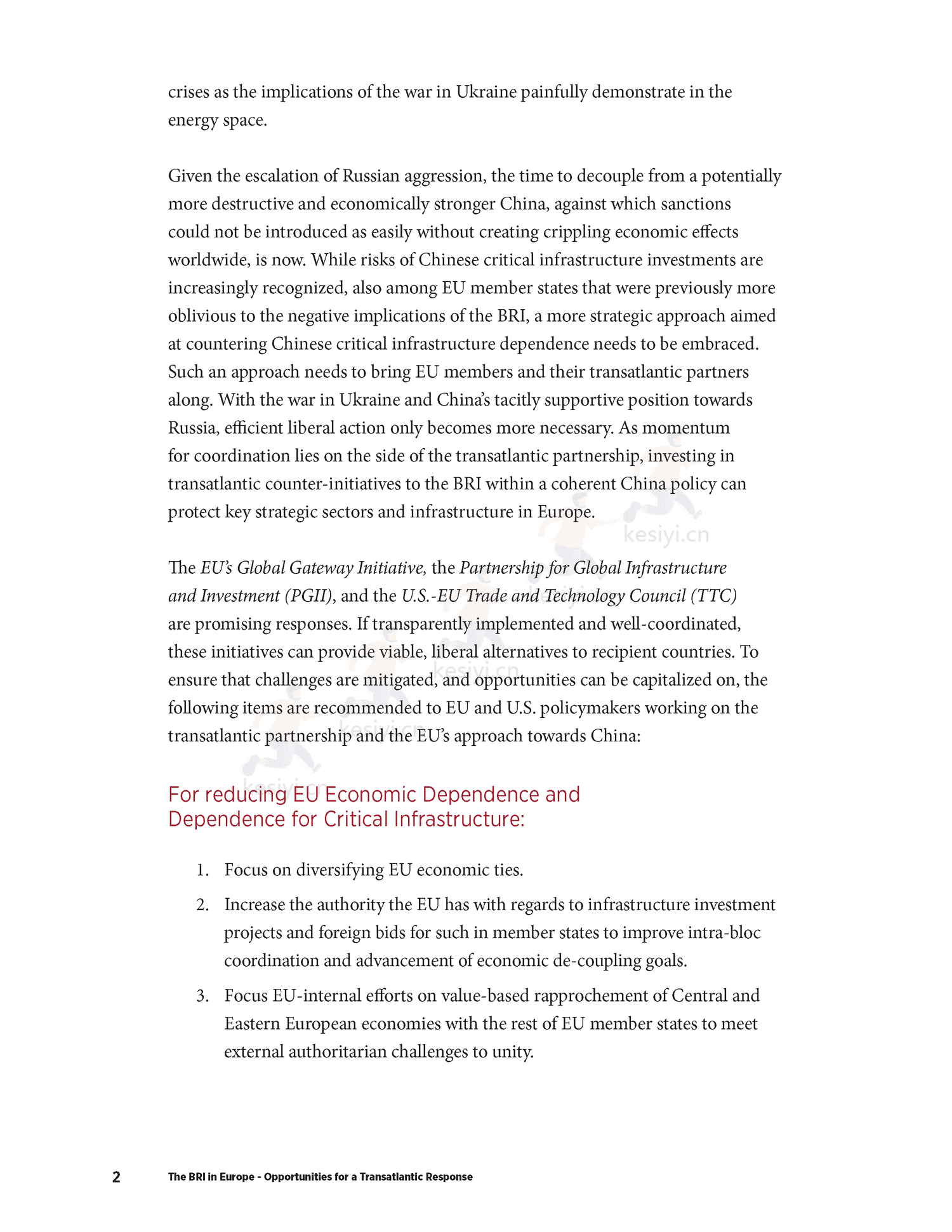 8 / 64
8 / 64
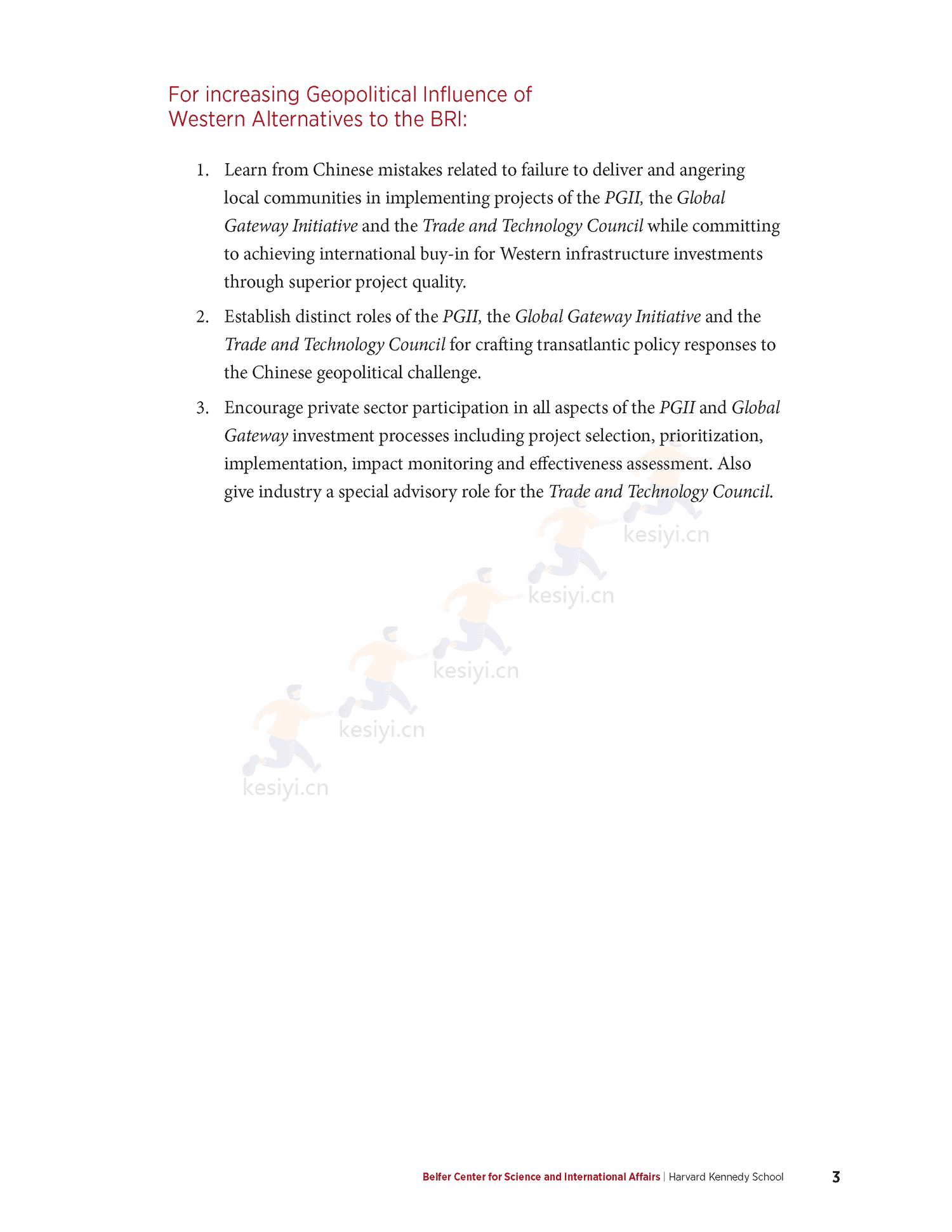 9 / 64
9 / 64
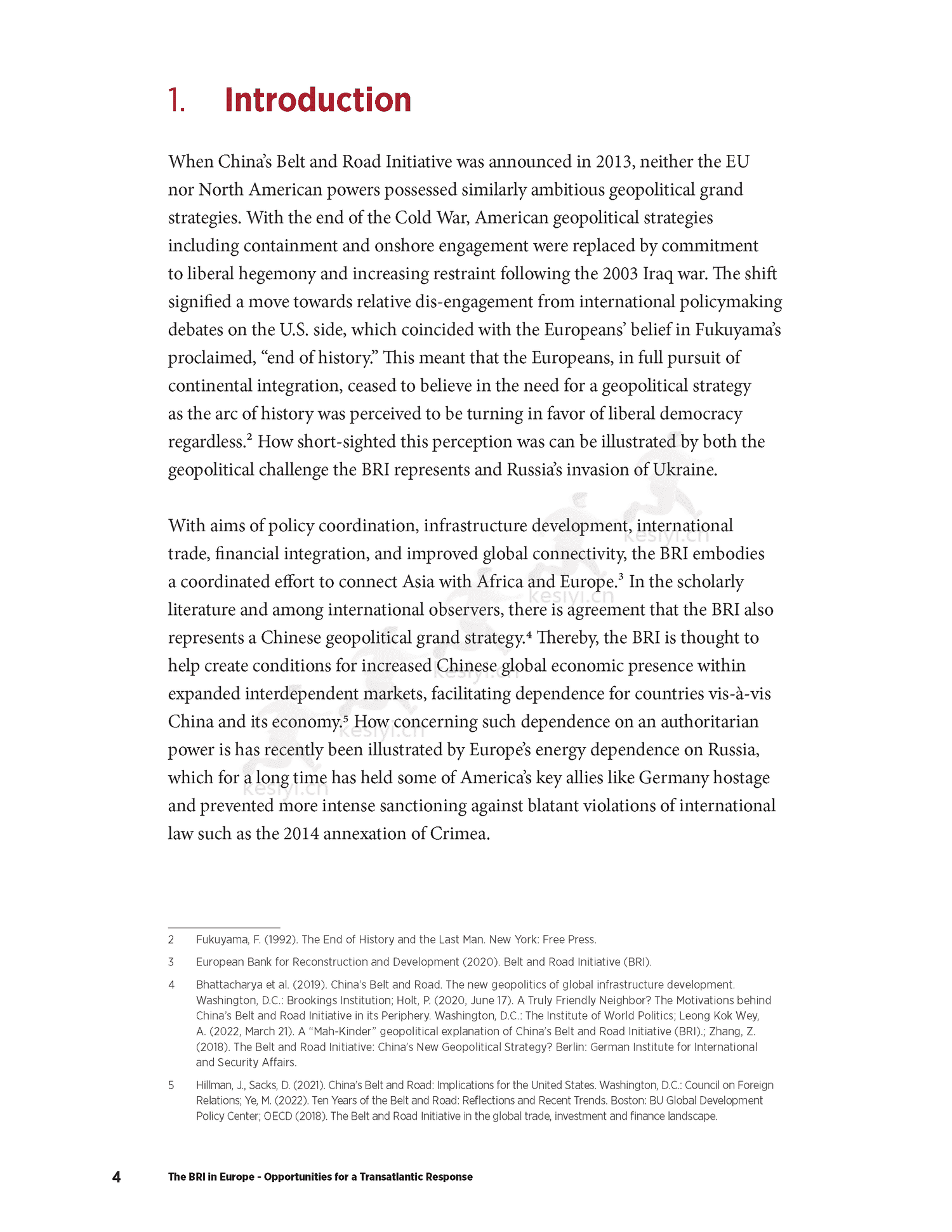 10 / 64
10 / 64
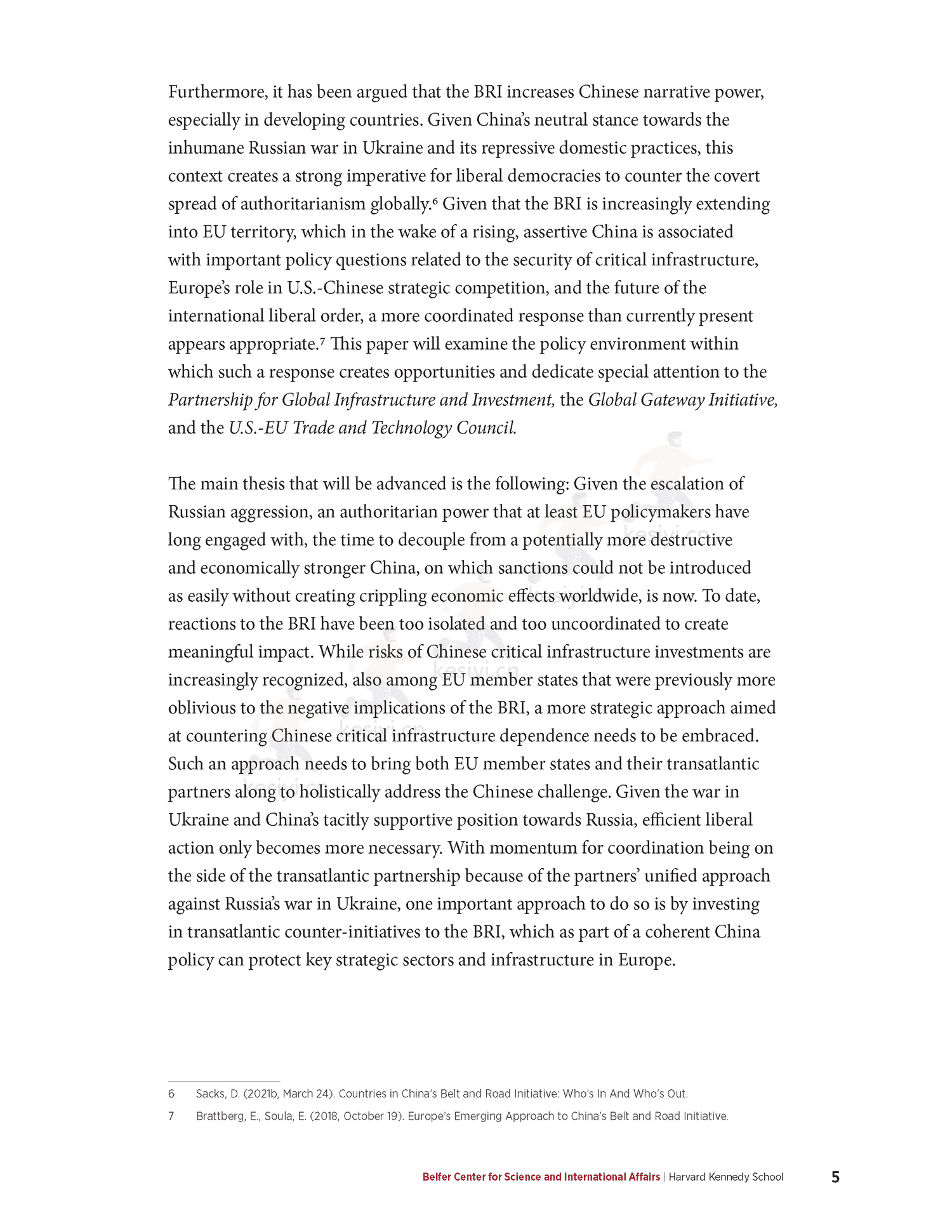 11 / 64
11 / 64
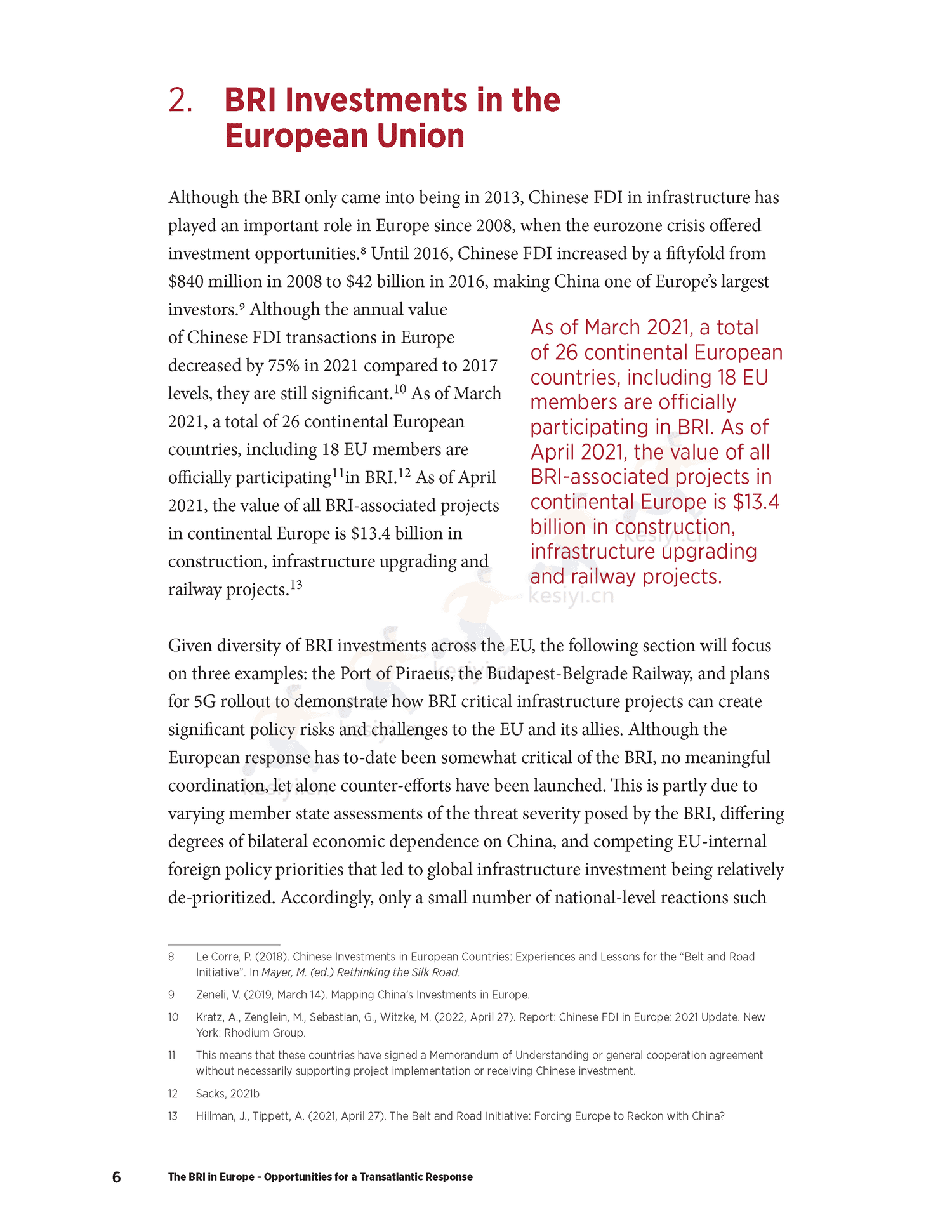 12 / 64
12 / 64
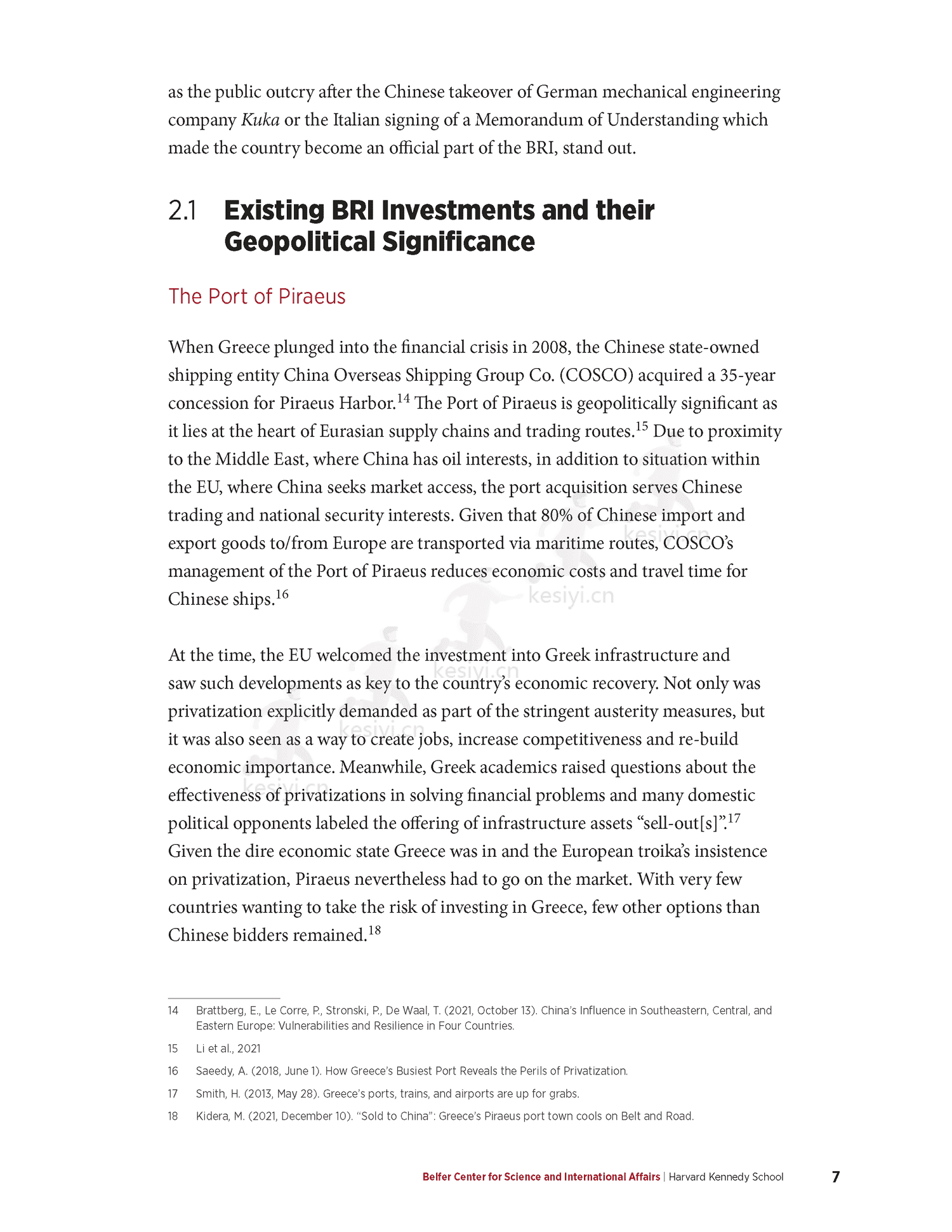 13 / 64
13 / 64
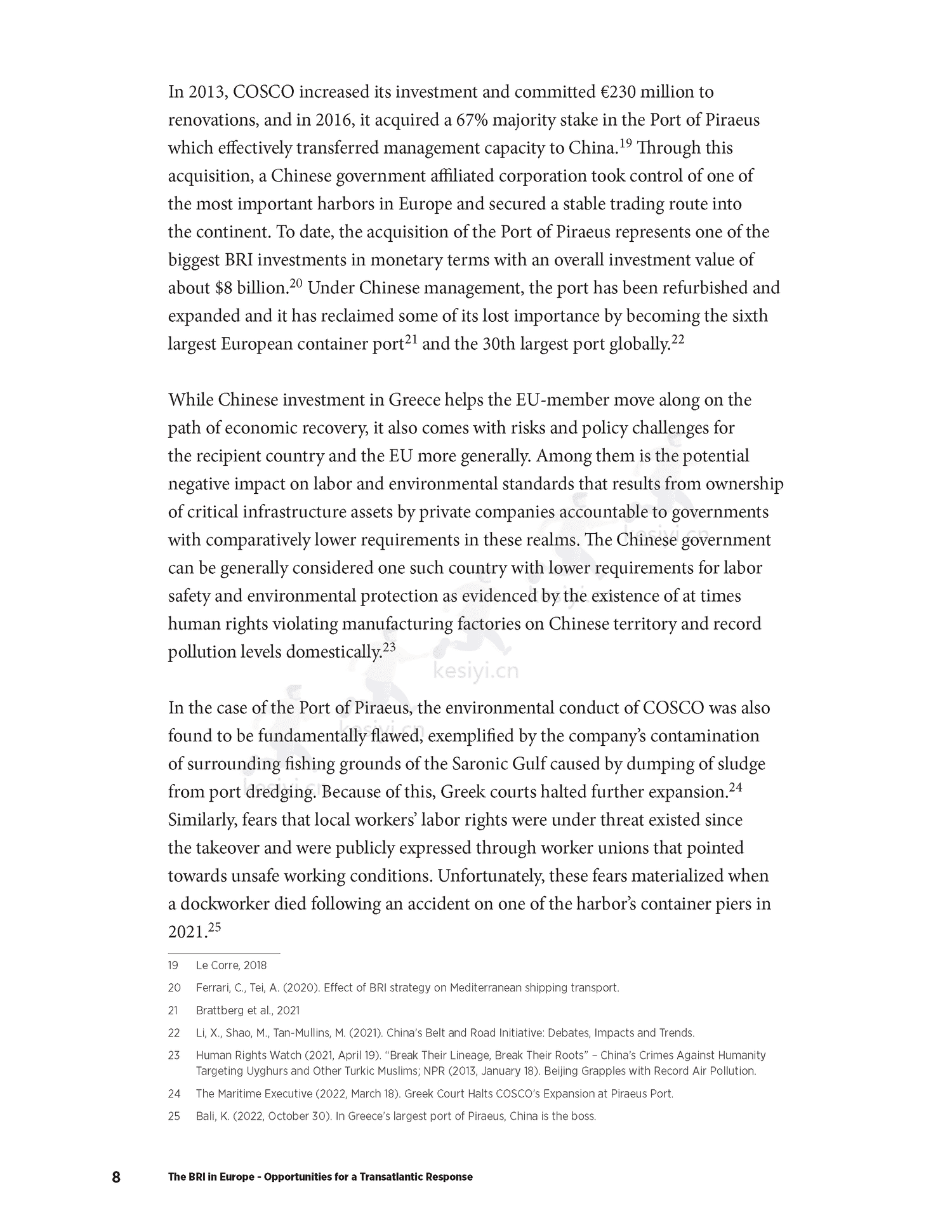 14 / 64
14 / 64
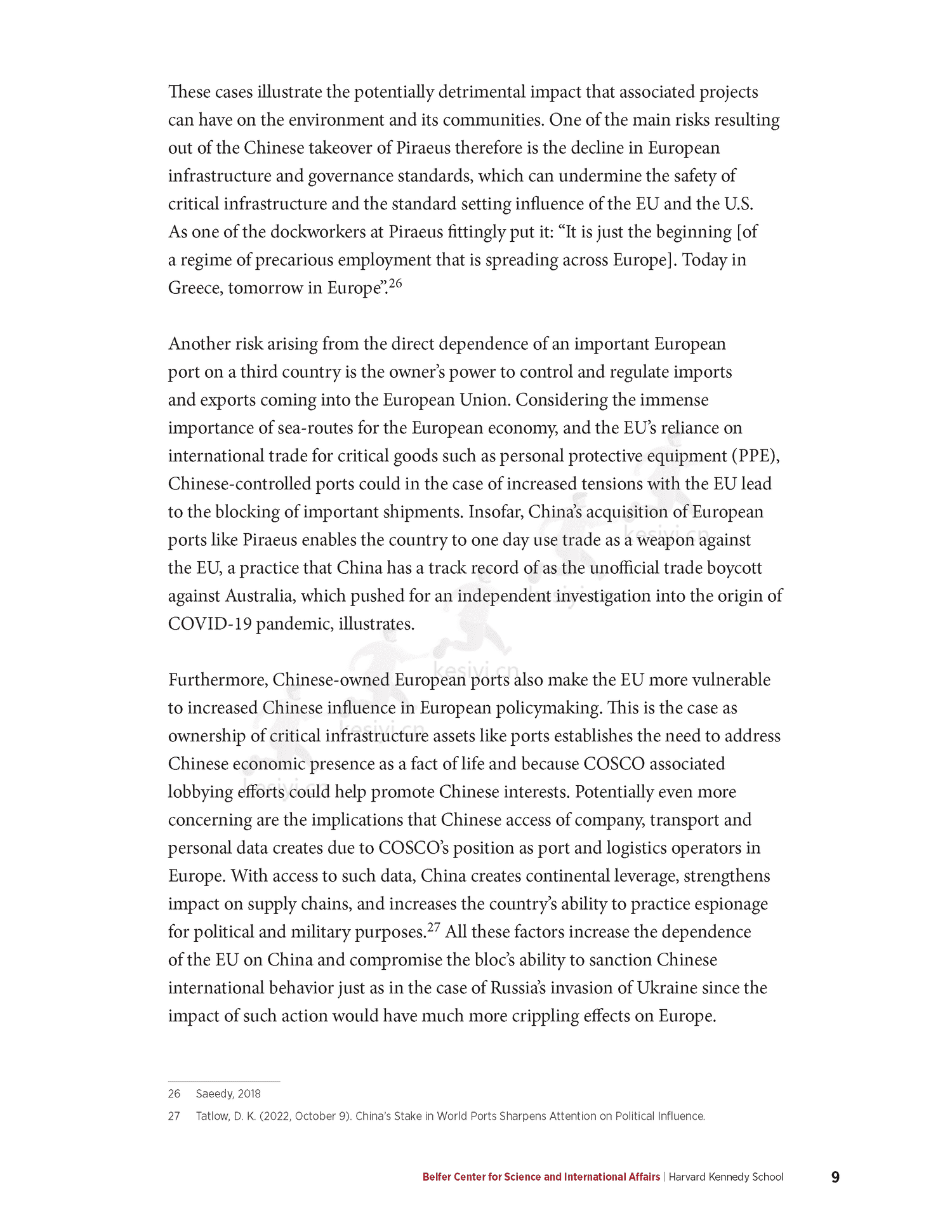 15 / 64
15 / 64
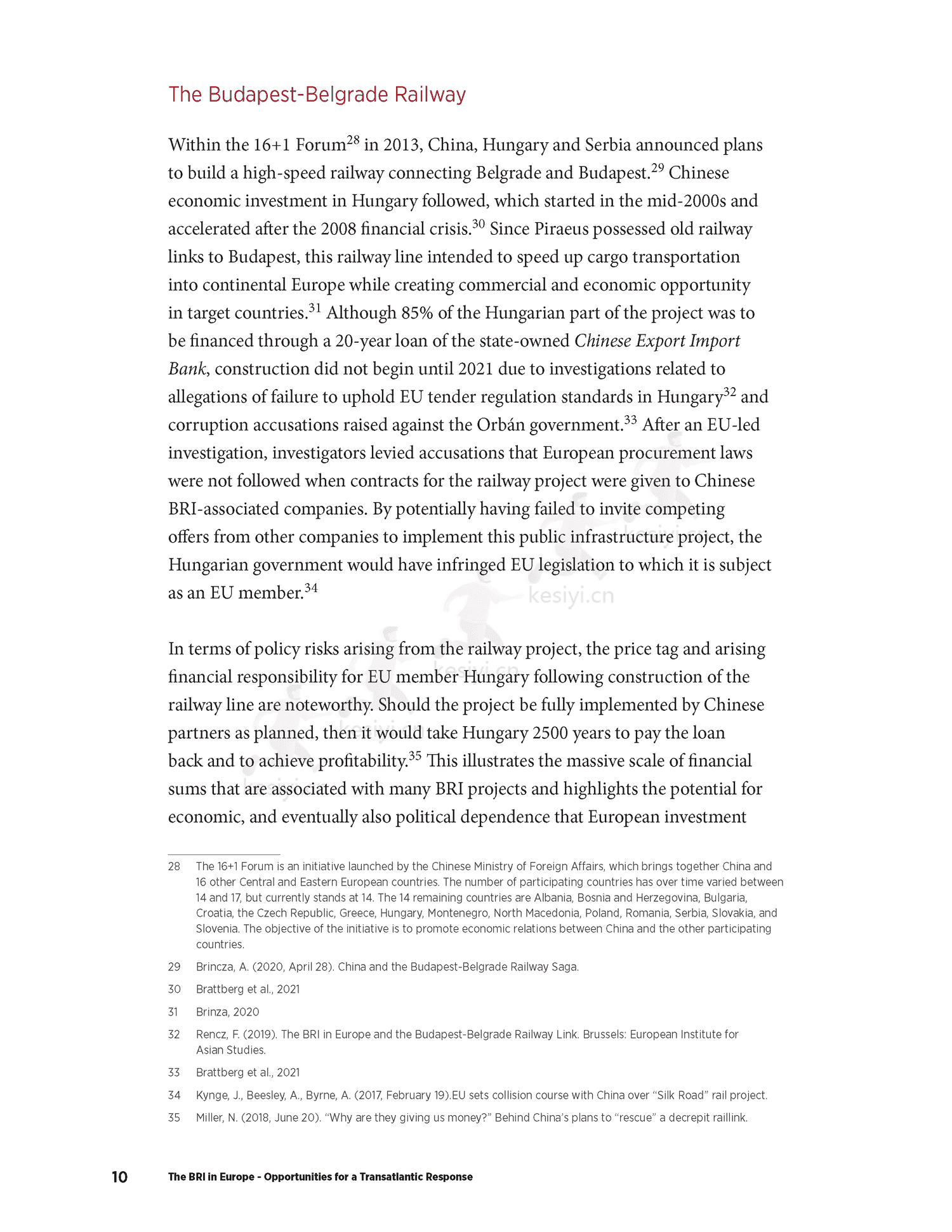 16 / 64
16 / 64
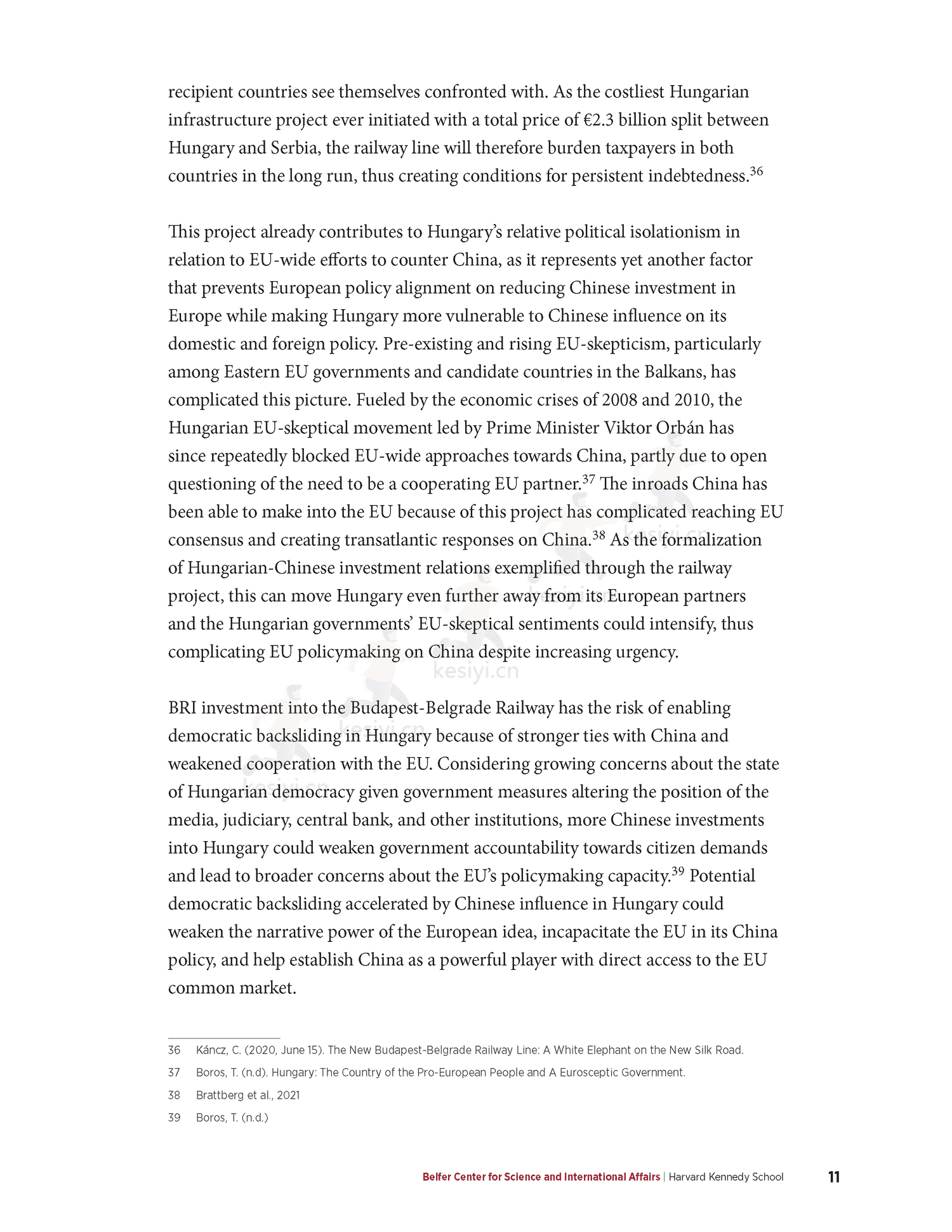 17 / 64
17 / 64
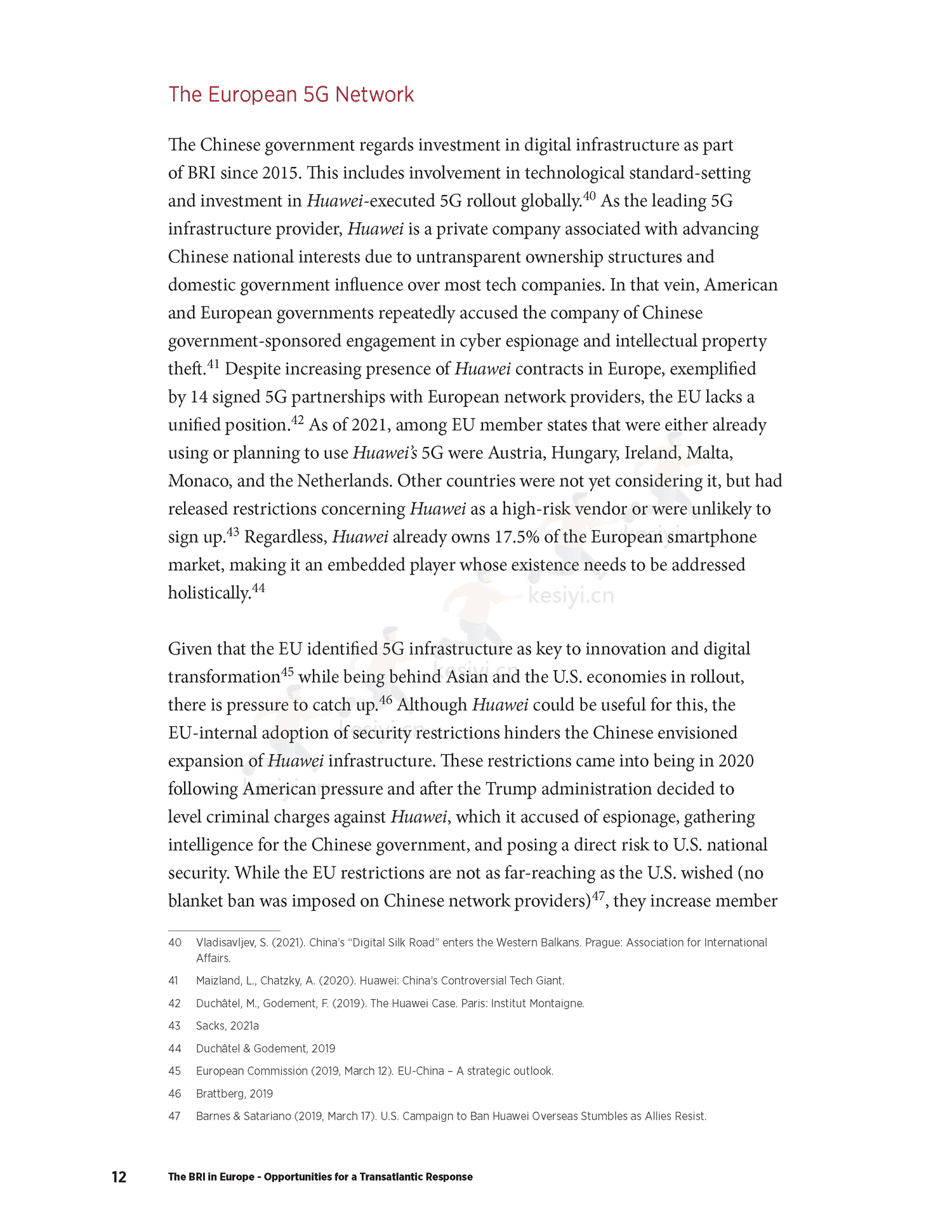 18 / 64
18 / 64
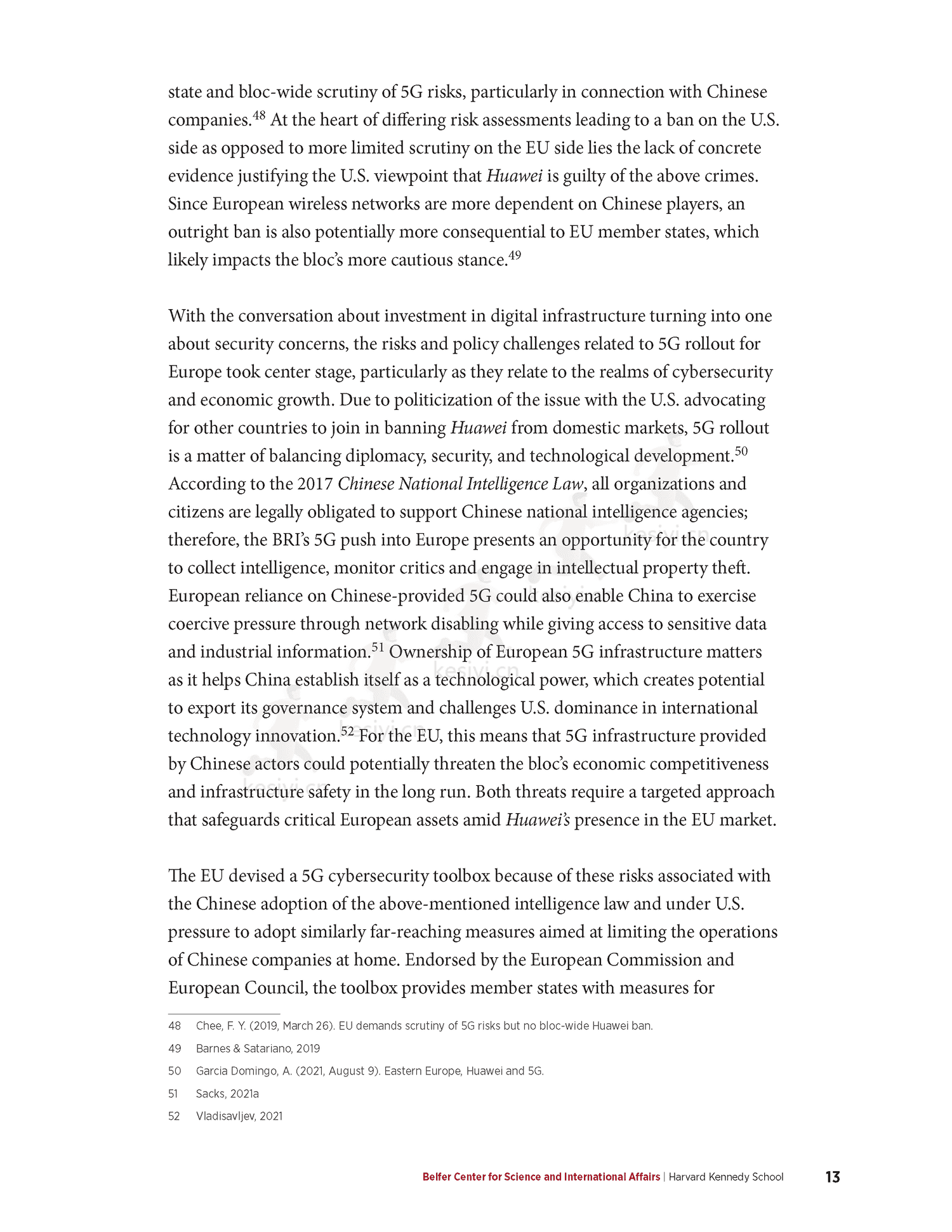 19 / 64
19 / 64
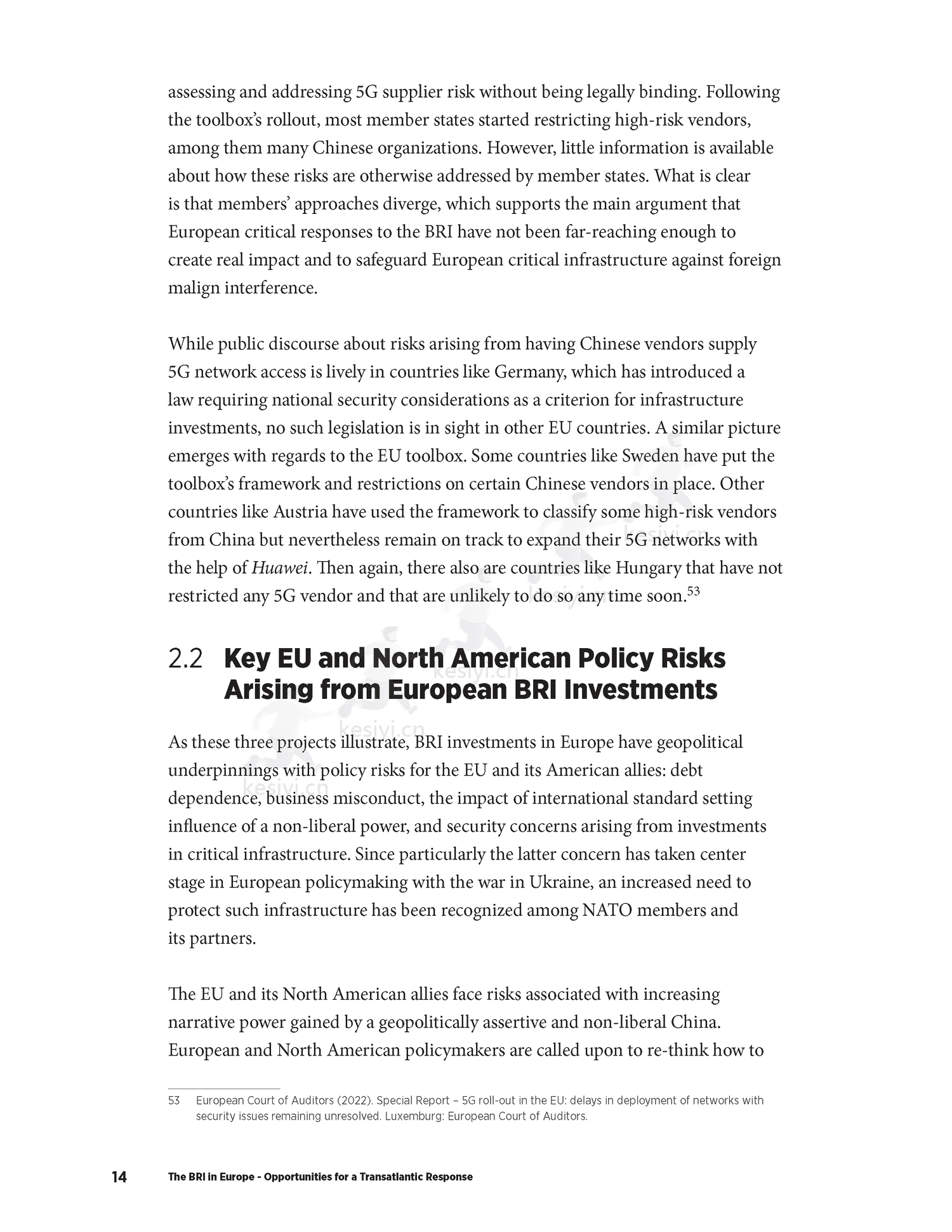 20 / 64
20 / 64
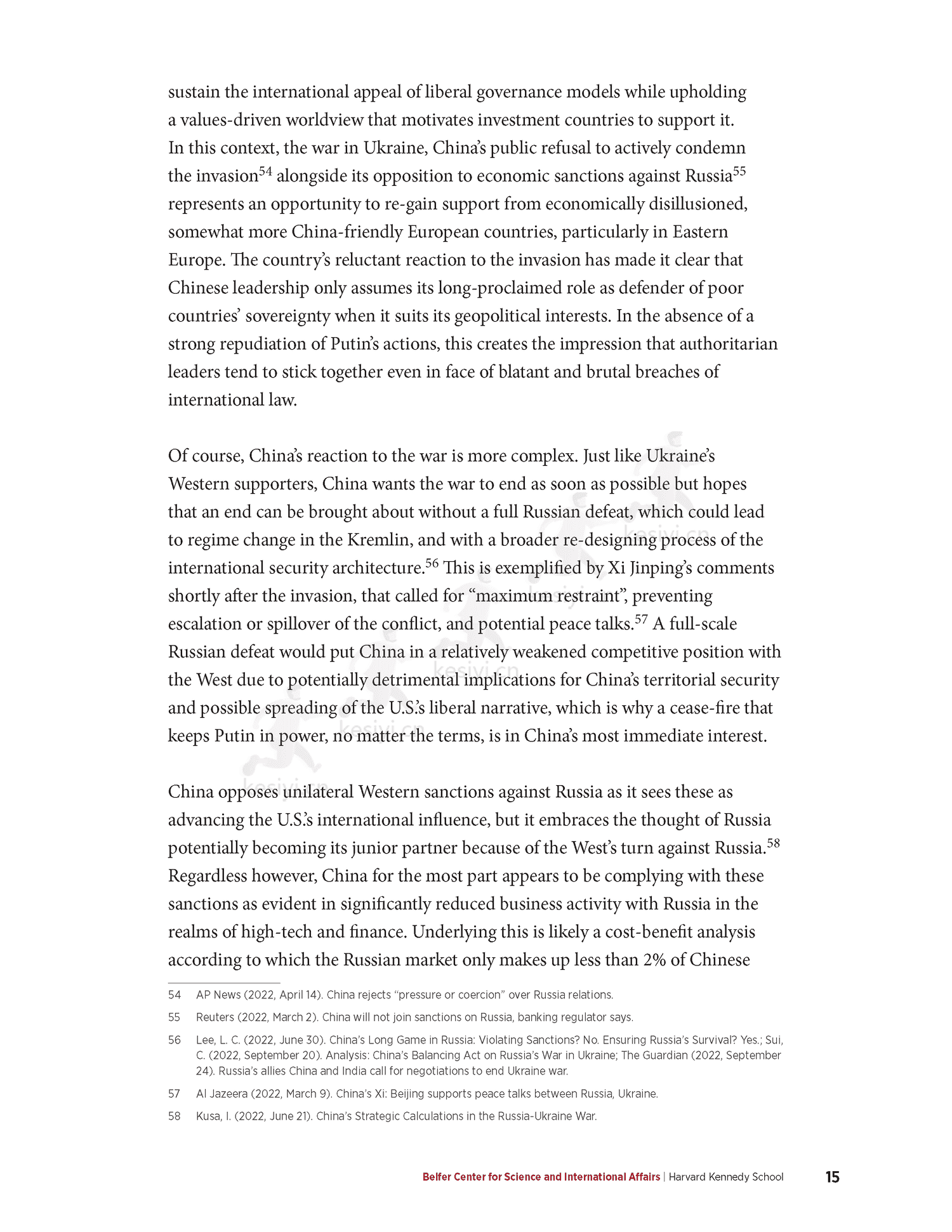 21 / 64
21 / 64
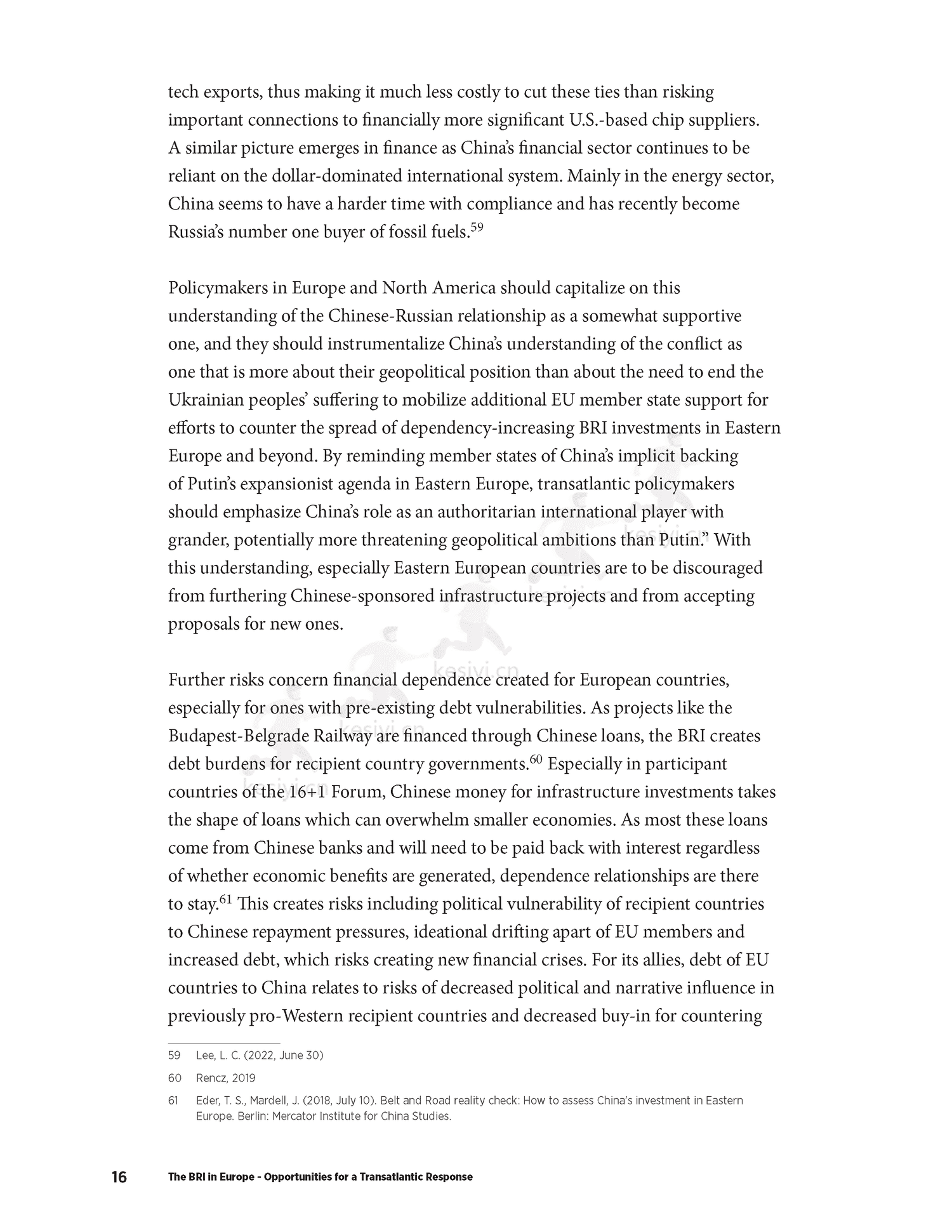 22 / 64
22 / 64
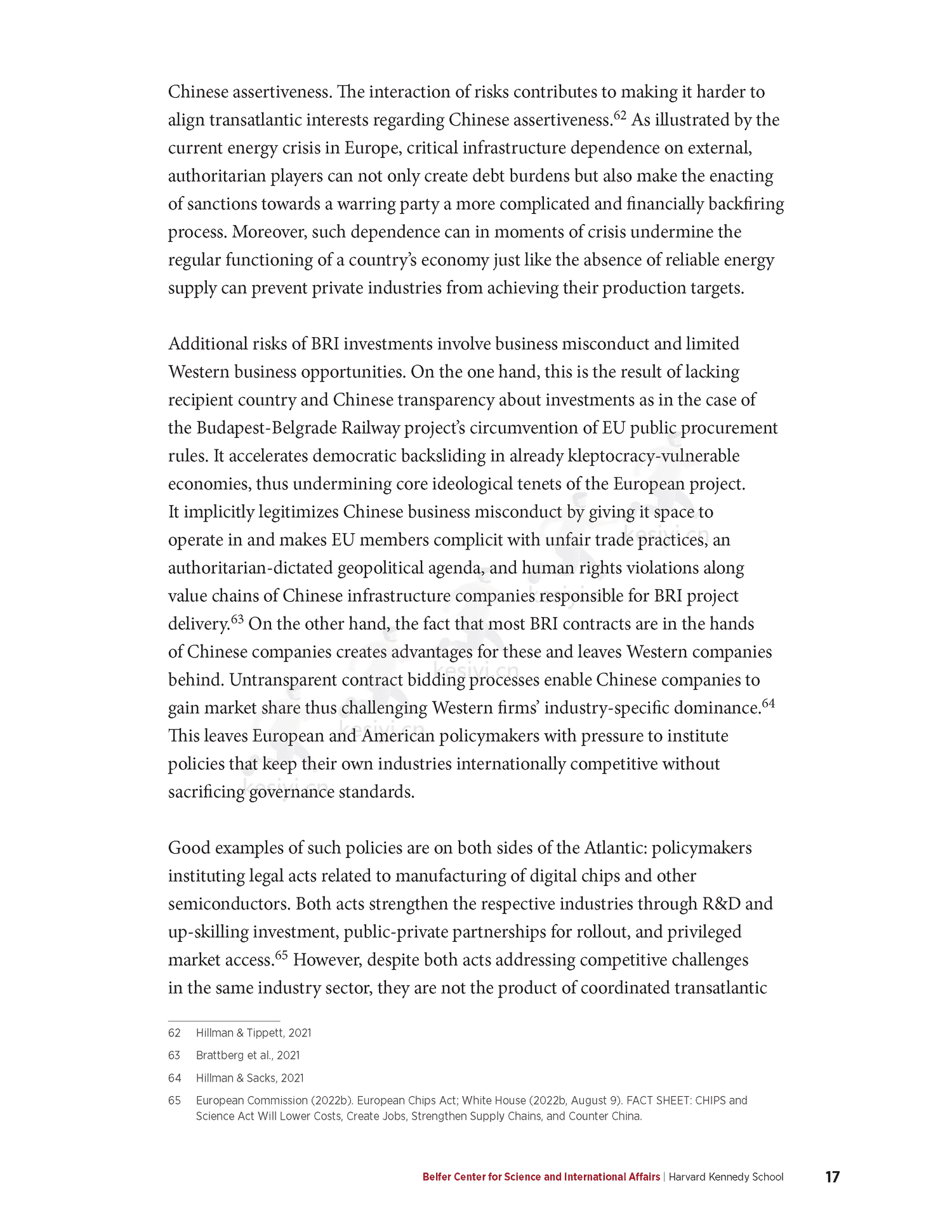 23 / 64
23 / 64
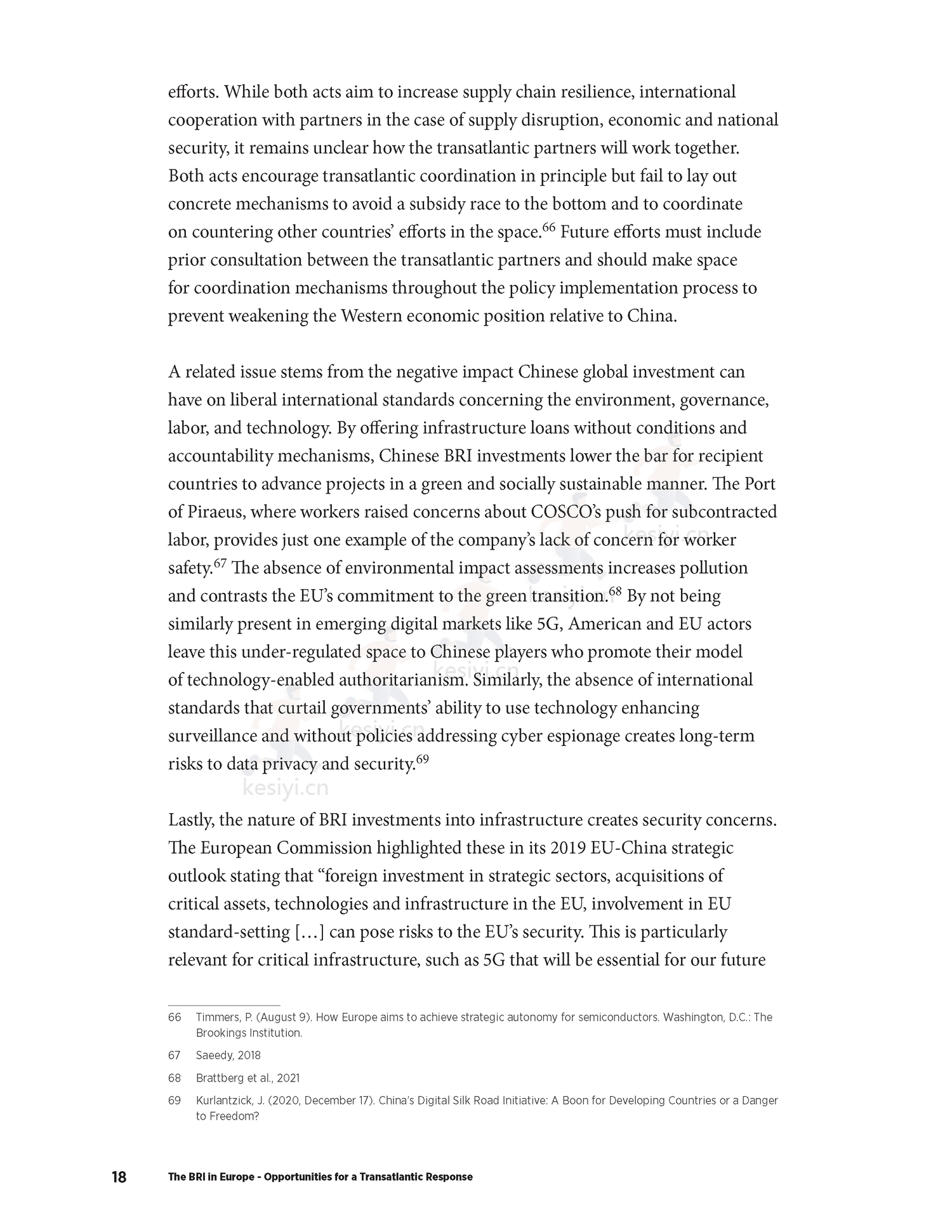 24 / 64
24 / 64
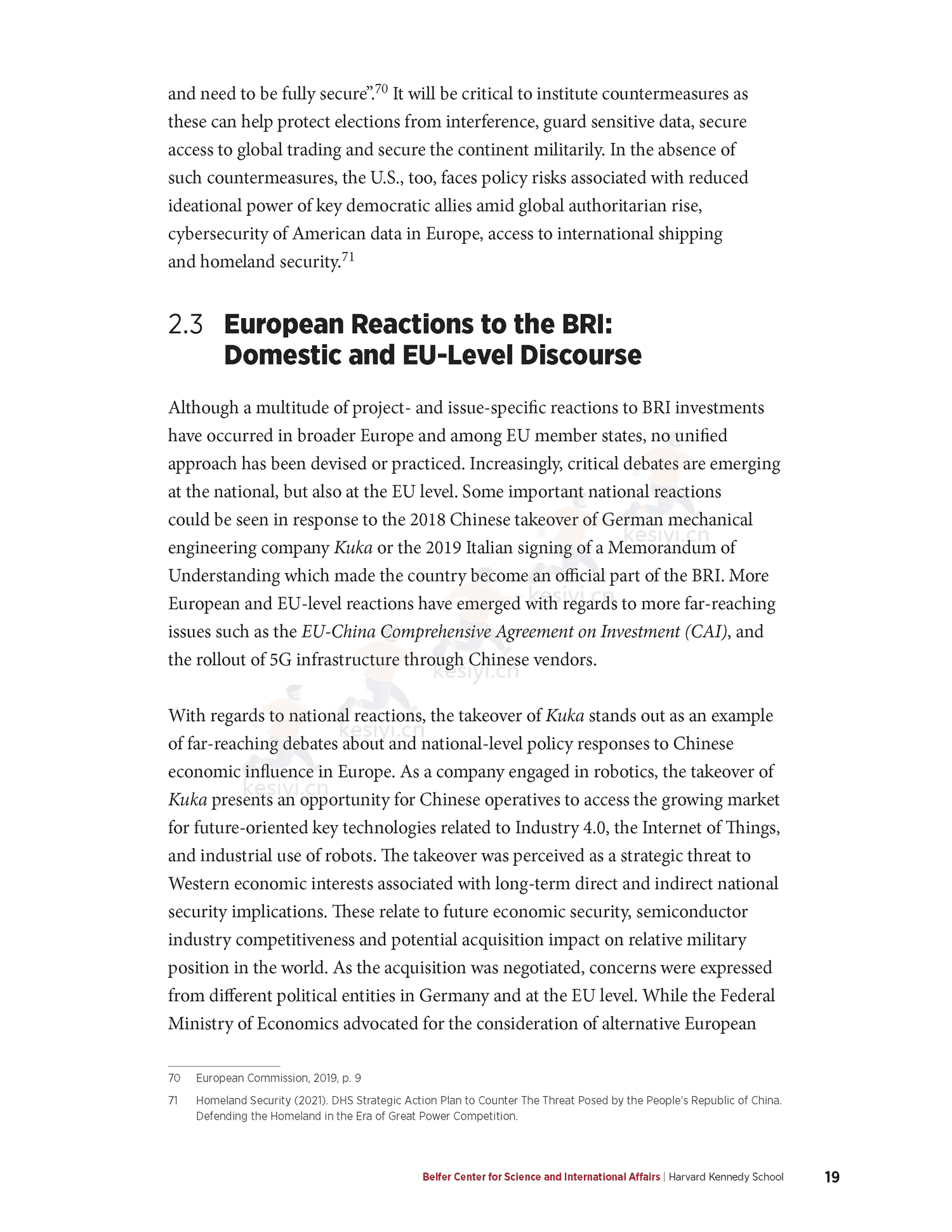 25 / 64
25 / 64
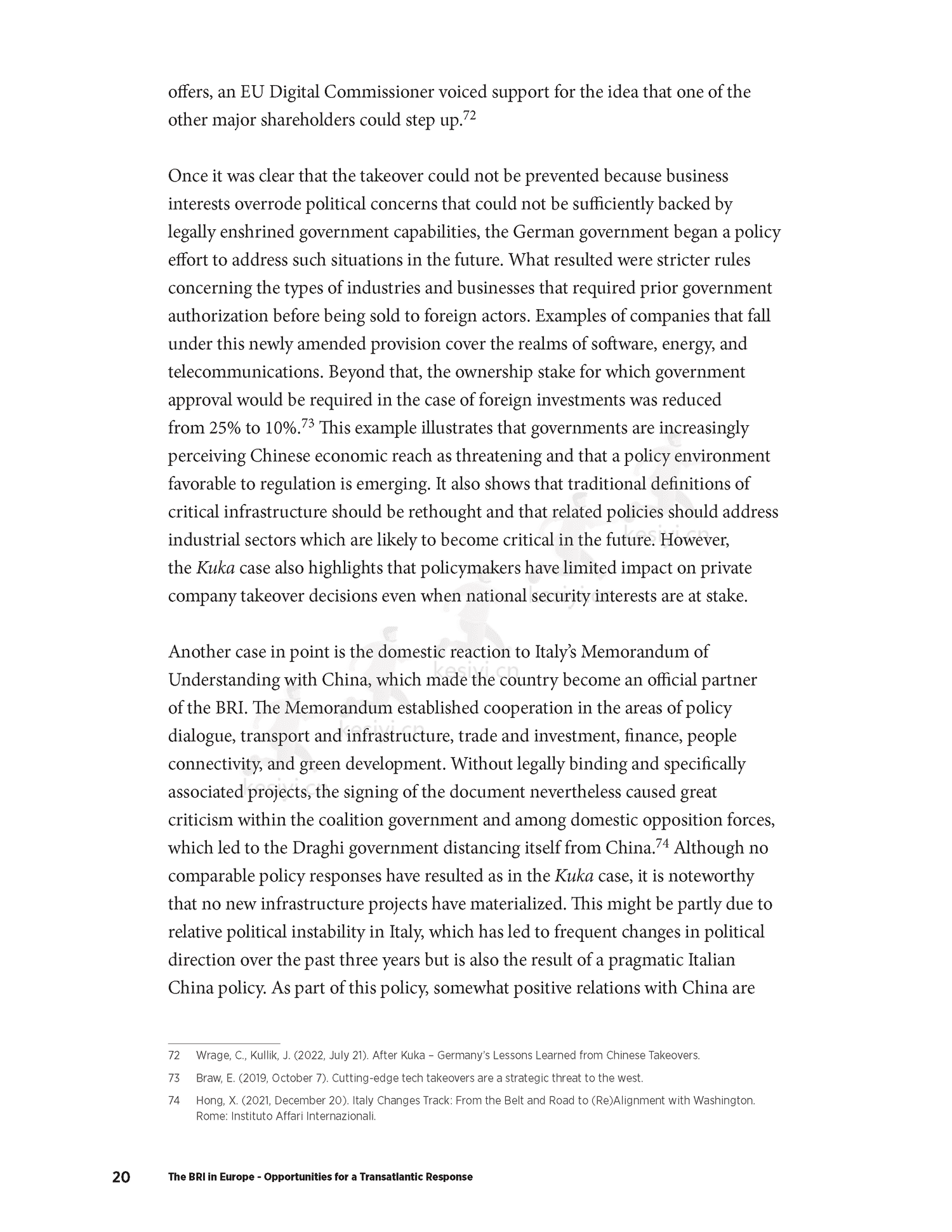 26 / 64
26 / 64
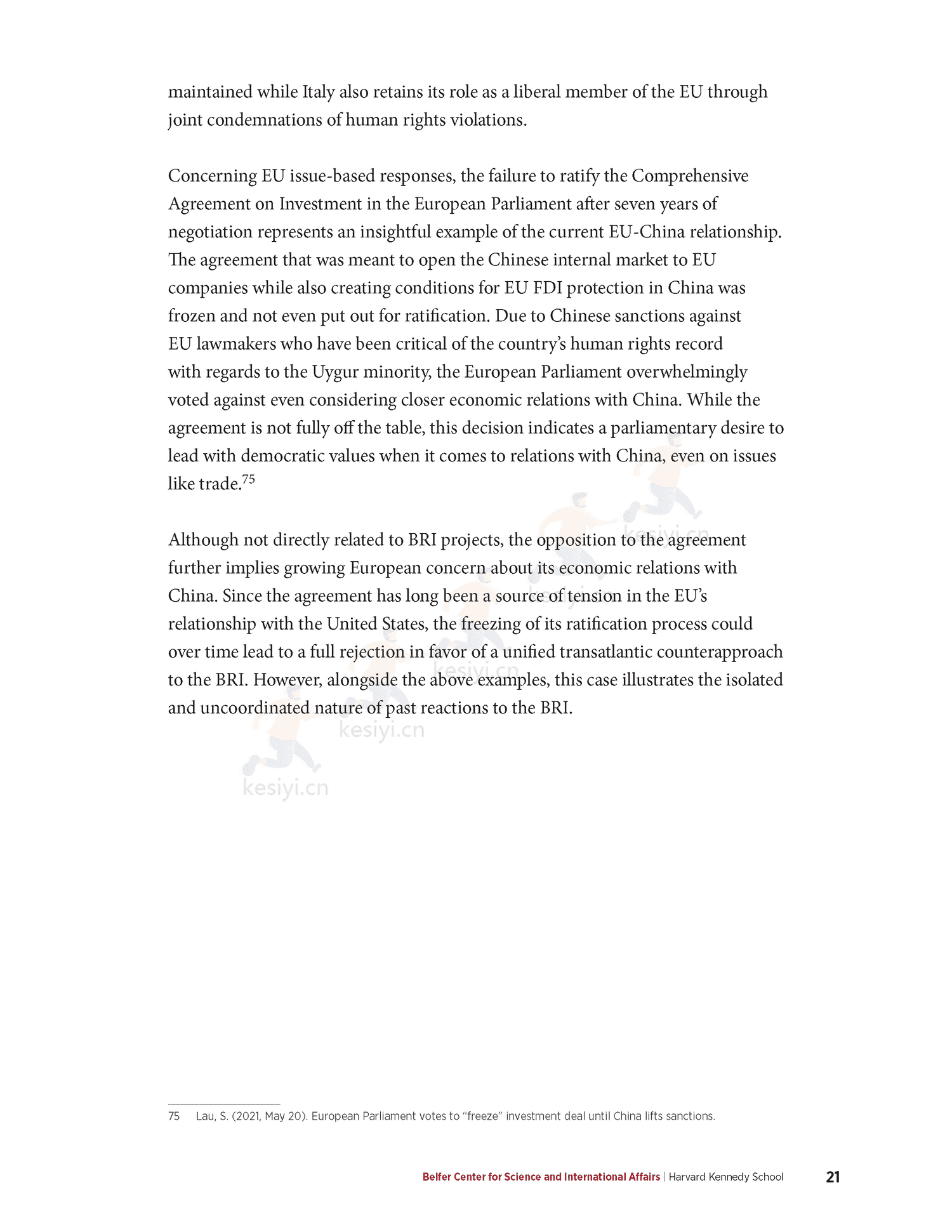 27 / 64
27 / 64
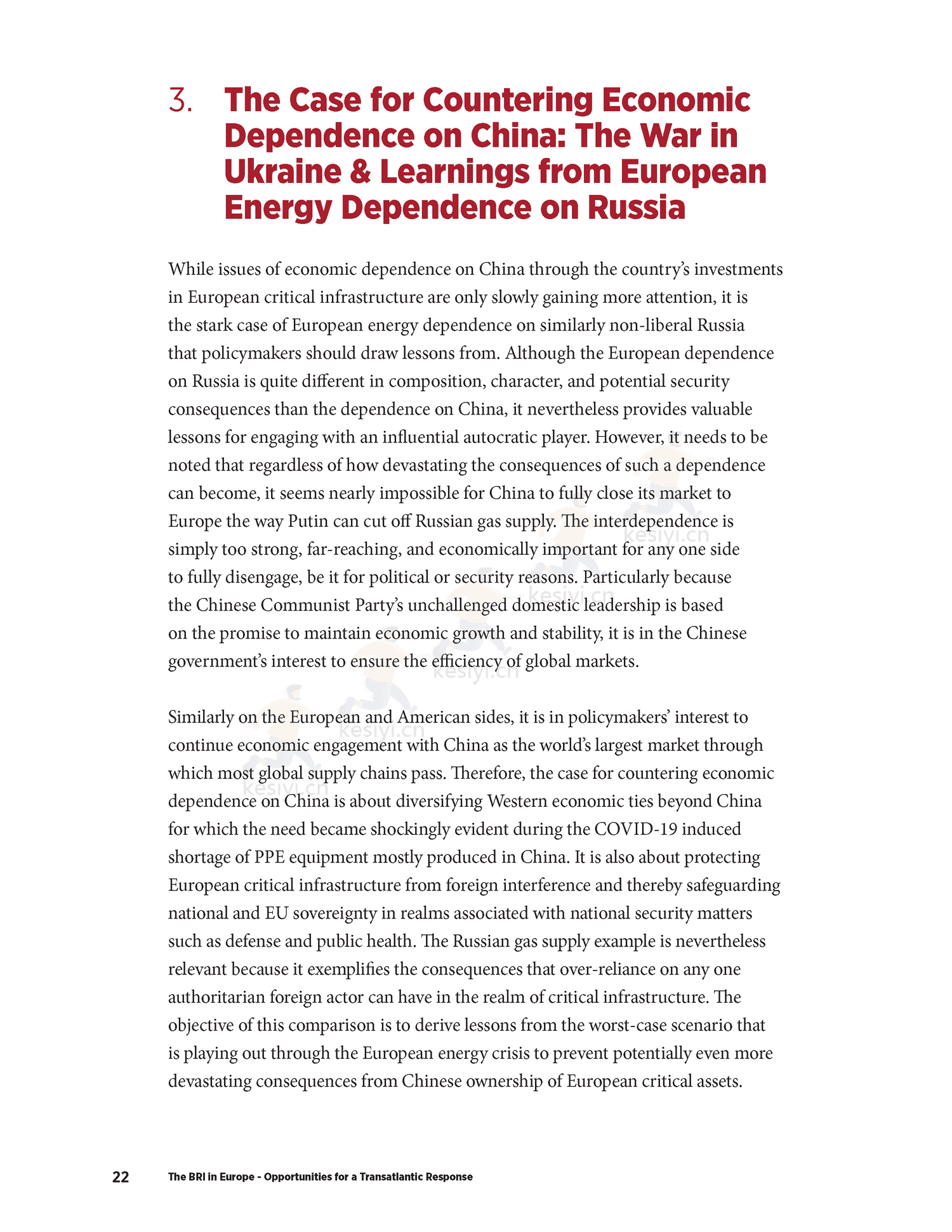 28 / 64
28 / 64
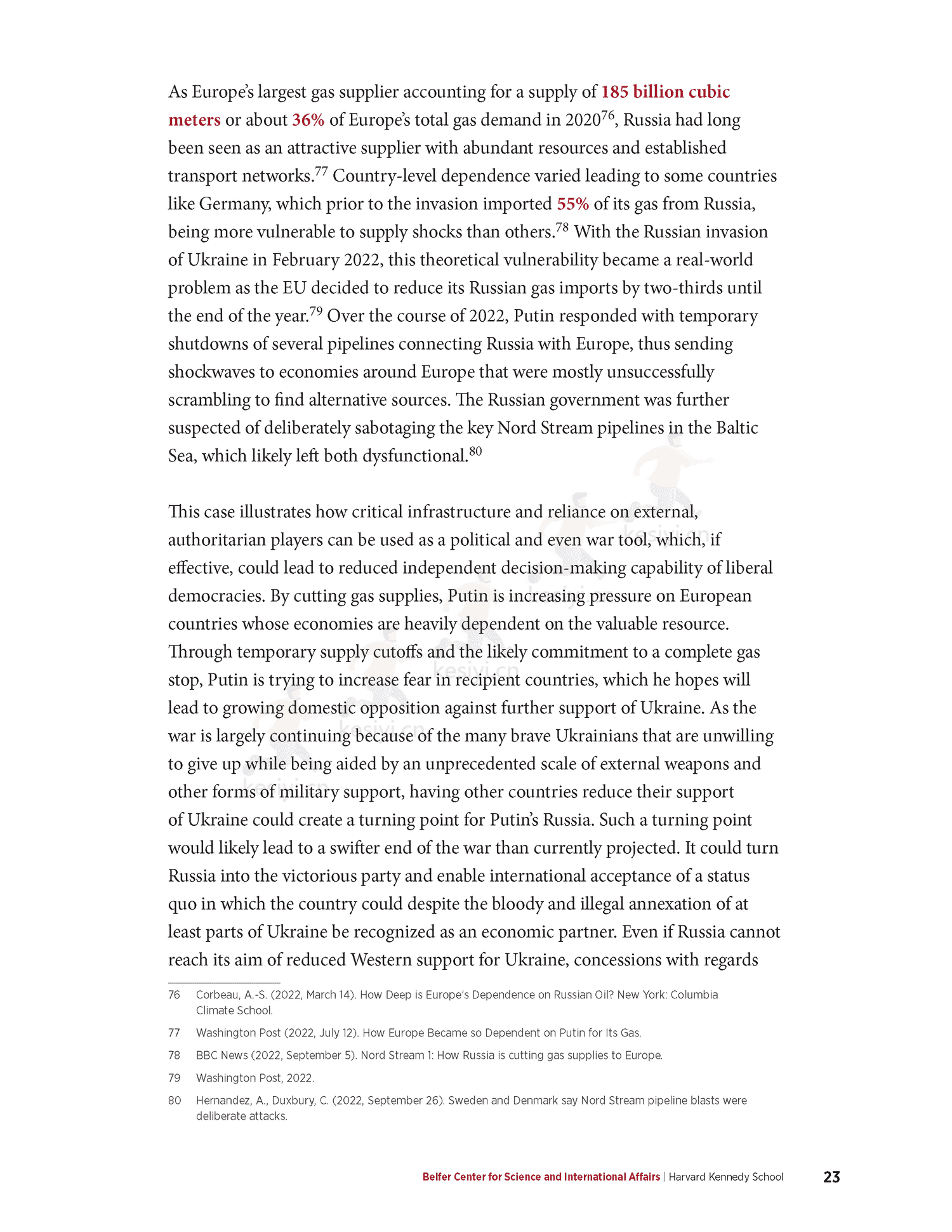 29 / 64
29 / 64
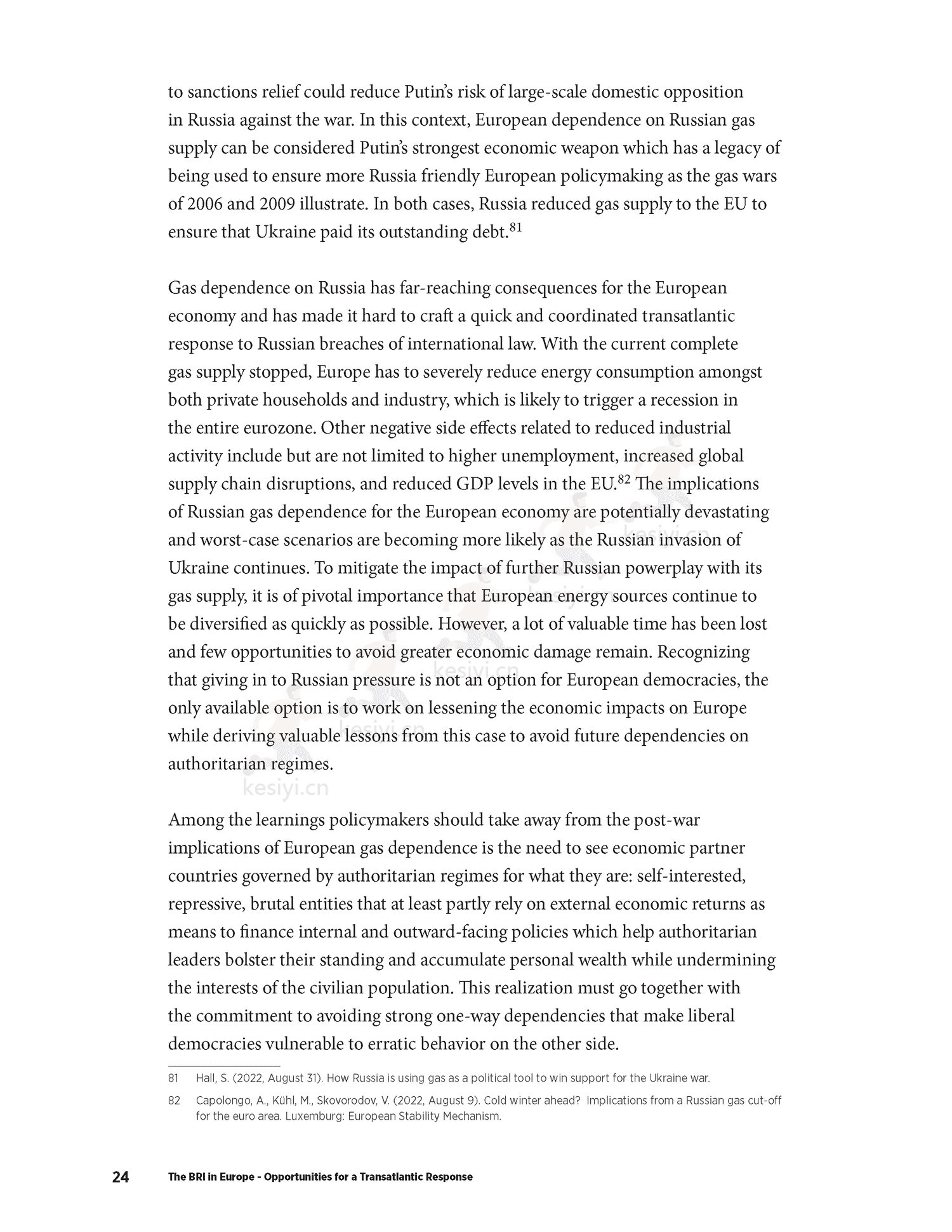 30 / 64
30 / 64
本文档共64页,请下载完整版阅读。
免责声明:本平台只做内容的收集及分享,内容版权归原撰写发布机构(或个人)所有,由小编通过公开合法渠道获得,如涉及侵权,请联系我们删除;如对报告内容存疑,请与撰写、发布机构联系。














